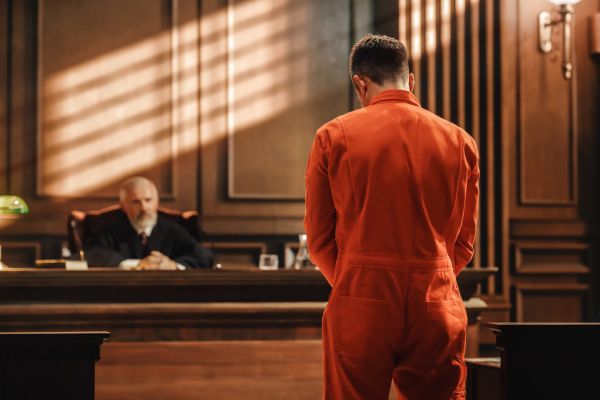Facing the criminal justice system can be an overwhelming and intimidating experience. Whether you’re a concerned citizen, a law student, or someone directly involved, understanding the criminal charges process is essential. This journey from arrest to trial involves several critical steps, each with specific legal implications and procedures. Grasping these stages not only demystifies the legal landscape but also empowers individuals to navigate the process with greater clarity and confidence.
The Moment of Arrest: The Starting Point of the Criminal Charges Process
The criminal charges process begins the moment an individual is arrested. Arrests may happen on the spot if law enforcement officers witness a crime or based on a warrant issued by a judge after reviewing probable cause. Once arrested, the individual is taken into custody, where they are informed of their rights—commonly referred to as Miranda rights. These include the right to remain silent and the right to an attorney.
At this early stage, it is crucial to understand that being arrested does not necessarily mean a person is guilty. It is merely the first step in a broader legal procedure that must follow due process. The prosecution must present enough evidence to proceed, and the accused has the right to defend themselves at every stage of the process.
Booking and Initial Detention: Recording and Evaluation
Following the arrest, the suspect undergoes a procedure known as booking. This step involves recording the individual’s personal details, taking fingerprints, and photographing them. In some cases, suspects may be released immediately, particularly for minor offenses, either on their own recognizance or after posting bail.
In situations where immediate release is not granted, the accused may be held in custody until their arraignment. During this time, law enforcement officers and prosecutors evaluate the case to determine whether formal charges will be filed. This decision heavily depends on the strength of the evidence collected and the nature of the alleged crime.
The Arraignment: Formal Introduction of Charges
The arraignment marks the first formal court appearance in the criminal charges process. At this stage, the charges are officially presented to the defendant in court. The judge reads the charges, and the defendant is asked to enter a plea—guilty, not guilty, or no contest.
A plea of not guilty leads to the scheduling of future court dates, including preliminary hearings or pretrial motions. If the defendant pleads guilty or no contest, the case may proceed directly to sentencing. However, in most criminal cases, a not guilty plea is common at this stage to allow for further examination of the evidence and potential negotiation.
Pretrial Phase: Evidence Gathering and Strategy Development
Once the arraignment concludes, the criminal charges process moves into the pretrial phase. During this period, both the prosecution and defense engage in what is known as discovery. This involves the exchange of evidence, witness lists, and any other information pertinent to the case. The objective here is to ensure that both sides have a fair opportunity to prepare their arguments.
At this juncture, attorneys might file various motions. These can include motions to dismiss the case, exclude certain evidence, or request a change of venue. Simultaneously, negotiations may take place between the defense and prosecution to reach a plea bargain. A plea bargain can result in reduced charges or lighter sentencing, offering a resolution without the need for a trial.
Preliminary Hearings and Grand Juries: Evaluating Probable Cause
In felony cases, the criminal charges process often includes a preliminary hearing or a grand jury proceeding. Both serve the same fundamental purpose: to determine whether sufficient evidence exists to proceed to trial.
During a preliminary hearing, a judge reviews the evidence presented by the prosecution to decide if there’s probable cause to believe the defendant committed the crime. In a grand jury proceeding, a group of citizens hears the evidence and decides whether to issue an indictment. These proceedings are crucial checkpoints in the legal process, as they prevent unfounded or weak cases from advancing to trial.
The Trial: Presenting the Case Before a Judge or Jury
If the case proceeds to trial, this marks the most pivotal stage of the criminal charges process. The trial may be conducted before a judge alone or a jury, depending on the nature of the charges and the defendant’s preference. Both sides present their evidence, call witnesses, and make arguments supporting their case.
The burden of proof lies entirely on the prosecution, which must establish the defendant’s guilt beyond a reasonable doubt. The defense has the opportunity to refute this evidence, challenge the credibility of witnesses, and present its own version of events. After both sides rest their cases, the judge or jury deliberates and delivers a verdict.
Verdict and Sentencing: The Legal Resolution
Once a verdict is reached, the criminal charges process moves toward resolution. If the defendant is found not guilty, they are acquitted and released. However, a guilty verdict leads to sentencing, during which the judge determines the appropriate penalty based on the nature of the offense, the defendant’s criminal history, and other mitigating or aggravating factors.
Sentences can vary widely, ranging from fines and community service to probation or imprisonment. In some cases, defendants may have the right to appeal the verdict or sentence if legal errors occurred during the trial.
Appeals and Post-Conviction Options
Even after sentencing, the criminal charges process may not be over. Defendants have the right to appeal a conviction, particularly if there were errors in legal procedure, issues with the admissibility of evidence, or ineffective legal representation. Appeals are reviewed by higher courts, which can affirm the original decision, reverse the conviction, or remand the case for a new trial.
Post-conviction relief options also include motions for a new trial, sentence modification, or petitions for clemency or parole, depending on jurisdiction and specific case factors.
The Importance of Legal Representation Throughout the Process
One of the most vital elements in the criminal charges process is having competent legal representation. A skilled defense attorney not only protects the rights of the accused but also ensures that the legal process is fair and just. From challenging the legality of an arrest to negotiating plea deals or building a strong defense for trial, the attorney plays a critical role in every stage.
Legal counsel also provides emotional support and strategic guidance, helping individuals understand their rights and options at each phase. Whether privately hired or appointed by the court, an effective defense attorney can significantly impact the outcome of a case.
Conclusion: Navigating the Criminal Charges Process with Awareness and Confidence
Understanding the criminal charges process is key to ensuring justice and protecting individual rights. From the initial arrest to the potential appeals process, each stage carries significant legal implications. While the journey through the criminal justice system can be daunting, knowledge and the right legal support can make a substantial difference.
This complex process underscores the importance of fairness, due process, and the presumption of innocence. By appreciating each phase—from arrest, booking, and arraignment to trial and potential appeal—individuals and their families can better prepare for the challenges ahead and take informed steps toward achieving a just resolution.



